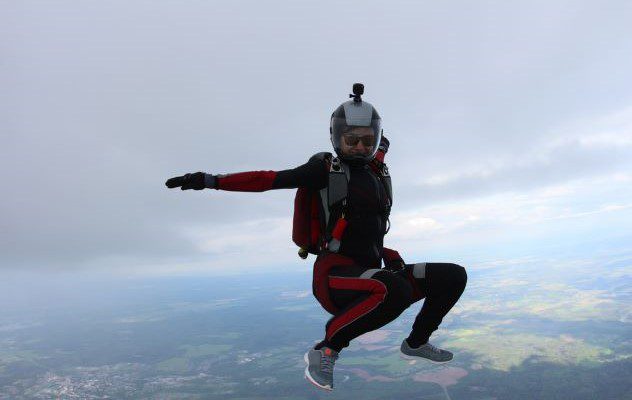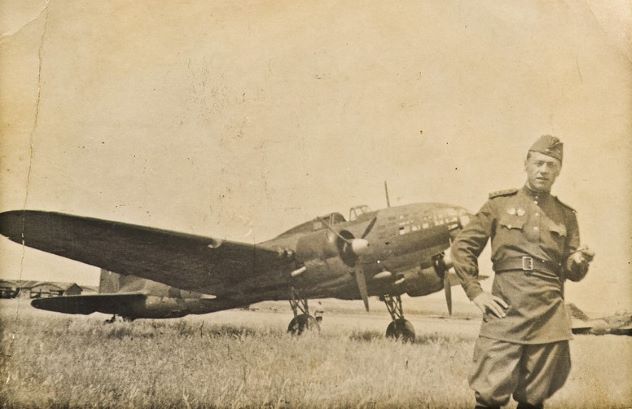 History
History  History
History  Movies and TV
Movies and TV 10 Movie Adaptations That Ruined Everything for Some Fans
 History
History 10 Dirty Government Secrets Revealed by Declassified Files
 Weird Stuff
Weird Stuff 10 Wacky Conspiracy Theories You Will Need to Sit Down For
 Movies and TV
Movies and TV 10 Weird Ways That TV Shows Were Censored
 Our World
Our World 10 Places with Geological Features That Shouldn’t Exist
 Crime
Crime 10 Dark Details of the “Bodies in the Barrels” Murders
 Animals
Animals The Animal Kingdom’s 10 Greatest Dance Moves
 Movies and TV
Movies and TV 10 Box Office Bombs That We Should Have Predicted in 2025
 History
History 10 Extreme Laws That Tried to Engineer Society
 History
History 10 Wars That Sound Made Up (but Absolutely Happened)
 Movies and TV
Movies and TV 10 Movie Adaptations That Ruined Everything for Some Fans
 History
History 10 Dirty Government Secrets Revealed by Declassified Files
Who's Behind Listverse?

Jamie Frater
Head Editor
Jamie founded Listverse due to an insatiable desire to share fascinating, obscure, and bizarre facts. He has been a guest speaker on numerous national radio and television stations and is a five time published author.
More About Us Weird Stuff
Weird Stuff 10 Wacky Conspiracy Theories You Will Need to Sit Down For
 Movies and TV
Movies and TV 10 Weird Ways That TV Shows Were Censored
 Our World
Our World 10 Places with Geological Features That Shouldn’t Exist
 Crime
Crime 10 Dark Details of the “Bodies in the Barrels” Murders
 Animals
Animals The Animal Kingdom’s 10 Greatest Dance Moves
 Movies and TV
Movies and TV 10 Box Office Bombs That We Should Have Predicted in 2025
 History
History 10 Extreme Laws That Tried to Engineer Society
10 More People Who Survived Falling from Extreme Heights
If you stand on top of Central Park Tower in New York and look down, you would assume that anybody who fell (or jumped) from such a height would simply not be able to survive. After all, if you did plunge 1500 feet (457 meters) from the top of the building, you would hit the pavement just 12 seconds later at a speed between 150 and 200 mph (241 and 322 km/h), which would almost certainly prove fatal. I only write “almost certain” because there are always some examples that prove nothing is ever certain.
Even though it seems impossible that anyone could survive falling from a distance of over 1500 feet, it actually happens a lot more than you might expect, so here is a list of 10 more people who fell from the sky but somehow survived.
Related: 10 People Who Actually Fell Into A Volcano
10 Christine McKenzie

Christine McKenzie was an experienced skydiver from South Africa who was in the process of completing her 112th jump in Johannesburg in 2004. Christine decided that she would attempt a sitting position jump for the first time, which helped her build up a lot of speed in freefall. Jumping from 11,000 feet (3,353 meters), she stayed in that position until roughly 6,000 feet (1,828 meters), when she flattened her body and deployed her parachute as she had done many times before. Unlike the previous 111 jumps, however, this time, something felt different, and Christine soon realized that something had gone drastically wrong.
The first thing she noticed was that she had not slowed down, and she also couldn’t see the familiar life-saving canopy above her head. Christine realized her main parachute had not opened, so she quickly deployed her reserve chute before cutting away the main. This resulted in the two becoming tangled before some critical lines snapped, sending her spinning wildly out of control.
As she plummeted toward the ground, Christine thought about her family and upcoming wedding before realizing she was heading straight into live power lines. This seemed to be terrible luck at the time but probably saved her life as they broke her fall before she crashed into the earth, suffering a broken pelvis and severe bruising but remaining conscious throughout. Fortunately, she was spotted during her descent by a passerby who stopped his truck to call an ambulance and help the stricken woman.
Christine eventually made a full recovery, although she did ask her husband-to-be to change their upcoming honeymoon plans from their adventurous ideas of skydiving and cage-diving with great white sharks to something a little more traditional and less terrifying.[1]
9 Emma Carey
In 2013, 20-year-old Emma Carey from Australia was just five days into her European holiday when she reached Switzerland for one of the highlights of her summer adventure. She had been excited about her plan to freefall over the Alps for some time and even claimed she was so “pumped” by the prospect of the jump that she didn’t even feel nervous when the helicopter reached an altitude of roughly 14,000 feet (4,267 meters). She even took some selfies, which she eventually uploaded to Twitter months later during her recovery.
Emma described the early moments of the freefall as incredibly peaceful, with an astonishing view of the mountain range below, but it was after the parachute deployed that she began to get the impression that everything was not going to plan. The first thing she noticed was that she did not slow down, so she started calling to the instructor, who was strapped to her back, to see if everything was okay.
She got no reply, so attributing his lack of response to the howl of the passing air drowning out her voice, Emma eventually craned her neck and looked up. It was then she noticed that not only had the main parachute and reserve chute not deployed properly, but they had also tangled together and wrapped themselves around the instructor’s neck, strangling him until he lost consciousness.
Emma was now hyper-aware of the reality of her situation, yet she had no idea what to do about it. The stricken pair hit the ground seconds later, with Emma’s body breaking her unconscious instructor’s fall. She suffered a shattered pelvis, broke her back, sacrum, and jaw, and lost most of her teeth. She remained conscious throughout the entire ordeal as her mouth filled with blood, and the excruciating pain was compounded by the unconscious instructor still strapped to her back, pinning her to the ground.
Even though she was told she would never walk again, Emma has managed to make an astounding recovery and has become something of a social media starlet since the accident. Through intense physiotherapy, she has managed to walk again, although she has lost all sensation in her lower body and still experiences medical problems related to her injury.[2]
8 Craig Stapleton
Craig Stapleton was a 51-year-old veteran skydiver when he decided to jump from a plane flying at an altitude of 8,000 feet (2,438 meters) to practice a stunt involving an American flag. Everything was going well until Craig’s leg became stuck, and he found himself spinning violently toward the ground. He quickly deployed his backup chute, but the ropes became even more tangled and ultimately malfunctioned as Craig became convinced he was going to die.
Fortunately, the two failed parachutes managed to decrease his speed to roughly 30mph (48 km/h) before he crashed into a freshly ploughed vineyard at what was described as a favorable angle. All these factors combined to ultimately save his life, as Craig suffered only a dislocated shoulder and some bumps and bruises from his fall. The whole incident was captured on a video which was recorded by a terrified and helpless cameraman.[3]
7 Elijah Arranz
Elijah Arranz was only 14 years old when he embarked on his first skydive, a tandem jump that would see him and 44-year-old instructor Tony Rokov leap from a plane at roughly 5,000 feet (1,524 meters) while strapped together. The jump seemed to be going to plan when Tony deployed the main parachute. Just like every other time Tony had done this jump, they began to glide toward the earth at a safe and enjoyable pace, enjoying the view as they descended. They were a mere 66 feet (20 meters) away from landing safely back on terra firma when a sudden gust of wind collapsed their parachute and flung them at the ground at a terrifying speed.
With tandem jumps, the instructor is strapped to the back of an inexperienced jumper so that they will be able to notice and rectify any issues with the ropes or the canopy should something go wrong. However, Tony’s actions on this fateful day went way above and beyond what should be expected from anyone in any job, regardless of its inherent dangers.
As the main chute collapsed and flung the pair toward the ground, Tony wrapped his legs and arms around the terrified teenager and twisted his body around underneath Elijah to absorb some of the impact from the ground. It is thought that his incredible act of bravery and selflessness is the only reason Elijah is still alive today, although it ultimately contributed to or may even have led directly to Tony’s death.
Elijah suffered numerous terrible injuries during the crash, which led to him using a wheelchair and struggling to speak for many years after. He has since made a remarkable recovery, which he attributes both to hard work in physiotherapy and the debt of gratitude that he owes to the brave man who saved his life.[4]
6 Carol Murray Rodriguez
In September 1997, Carol Murray Rodriguez was a 24-year-old from Nova Scotia who had undergone only four hours of skydiving training when she was allowed to jump solo from a plane traveling around 3,200 feet (975 meters). She had only been falling for 1 or 2 seconds before a video shot from below shows a gust of wind collapsing her parachute as she begins to spin out of control.
Like so many other people on this list, she deployed her reserve chute before ejecting the main one, leading to a tangle of canvas and lines that eventually saw her plummeting toward the ground at over 56 mph (90 km/h) before crashing into an older woman’s front garden.
She suffered numerous horrific injuries, including a broken femur, punctured lung, broken pelvis, and broken ribs. But her worst injury was a compound fracture to her right femur, which saw the bone rip through her thigh muscle and embed itself nearly 4 inches (10 centimeters) into the ground.
Since her accident, Carol has had over 25 different surgeries and still suffers from the long-term problems created by her injuries. However, if you watch the video, you’ll struggle to understand how she survived at all, and it highlights just how lucky she really is.[5]
5 Victoria Cilliers
So far, this list has dealt only with skydiving accidents, which some people may claim is just an unfortunate inevitability of partaking in such a dangerous pastime. While this may be true, not everyone who experiences a skydiving accident is a victim of bad luck or their own poor decision making.
In April 2015, experienced skydiving instructor Victoria Cilliers had been stuck on the ground for nearly a year as she had been pregnant and recently given birth to her second child. Her husband Emile decided to book a parachute jump for her at the Netheravon Airfield in Wiltshire, England, as a way of rewarding her for all the sacrifices she made during her pregnancy.
The morning of the jump, the weather was poor, and after numerous delays, Victoria and 11 others decided to do a low-altitude jump from 4,000 feet (1,219 meters) as cloud cover prevented them jumping from a higher altitude. Emile had brought along their newborn baby and three-year-old daughter to watch his wife jump from the safety of the ground.
The plan with a low-altitude jump is to deploy the parachute almost immediately after leaving the aircraft. However, as Victoria leaped from the plane, it quickly became apparent that something was wrong. The parachute didn’t deploy, and Victoria hurtled toward the ground at a frightening speed, crashing into a freshly plowed field at over 60 mph (96 km/h).
The first people to reach Victoria assumed they would find her deceased; however, despite suffering a broken spine, shattered pelvis, and fractured ribs, she was still barely alive. The other thing that surprised the rescue team was the state of her parachute at the crash site. It was knotted strangely on one side and appeared to be missing the soft links that attached the main parachute to the harness, something they struggled to explain at the time.
Eventually, after a 2-year investigation, Victoria’s husband, Emile, was charged with attempted murder after discovering that he had deliberately sabotaged her parachute the day before her fateful jump. It was also found that he had tried to kill her one week earlier by leaving the gas on, which put the lives of his entire family at risk.
He was sentenced to life in prison, although in TV interviews after the trial, Victoria publicly stated that she didn’t accept the verdict. This is despite the evidence against her husband showing he was having two simultaneous affairs and had contributed heavily to her life insurance policy while accumulating debts totaling well over $30,000. She eventually accepted that he had tried to kill her after all.[6]
4 Nicholas Alkemade
Everybody on this list up to this point has made their own decision to jump from a plane, apparently trusting themselves and everyone around them enough to embark on a pursuit that some would describe as exhilarating and others would call foolhardy. Either way, Nicholas Alkemade was in neither of these camps when he found himself serving as a rear gunner on an RAF Lancaster Bomber during the Second World War.
His mission, along with the rest of his squadron on the night of March 24, 1944, was to attack the German capital of Berlin. Everything was going pretty well until the return flight when strong winds blew many of the British bombers off course and toward the Ruhr Valley, an immensely important industrial center for Nazi Germany with an intense concentration of anti-aircraft defenses to deter bombing raids.
Shortly before midnight, Nicholas’s bomber (nicknamed Werewolf) was attacked from below by a German fighter plane, causing irreparable damage to the aircraft and forcing the captain to order his crew to bail out with their parachutes. As Nicholas scrambled to retrieve his parachute from the rear of the plane, he realized it was already ablaze, along with most of the aircraft, and he now faced an impossible decision.
He had to decide whether to remain in a burning aircraft as it plummeted to the ground or to bail out of the plane roughly 3.5 miles (5.6 kilometers) above enemy territory with no parachute. With his face and clothing already ablaze, Nicholas chose to jump from the plane. Hurtling toward the ground head first at over 120 mph (193 km/h), the Werewolf exploded in the air above him, then Nicholas blacked out.
When he woke up, Nicholas was lying on snowy ground in a pine forest with only the burns he had received in the plane, a twisted knee, and some bruising to show for his death-defying fall. Both of his flying boots had disappeared in the crash, so with little else to do, Nicholas lit up a cigarette and activated his distress signal until he was eventually discovered by German civilians and taken to a hospital.
He was detained and questioned by the Gestapo, who didn’t believe his story and accused him of being a spy before an examination of the crash site of the Werewolf and Nicholas’s landing spot corroborated his story. Nicholas saw the war’s end while a minor celebrity in the Stalag Lufeet III Prisoner of War camp.[7]
3 Ivan Chisov

Colonel Ivan Chisov was also fighting against the Nazis in WWII. However, he was a navigator for the Russian Red Air Force, serving in an Ilyushin Il-4 bomber when it was attacked by German fighter planes. He bailed out at a height of roughly 23,000 feet (7,010 meters). But unlike Nicholas Alkemade in the previous post, he did have a parachute.
Ivan’s problem was that opening the parachute too soon would make him an easy target for German fighter planes, so he chose to freefall as far as he could and deploy the parachute at the last possible second. Unfortunately, after falling from such a great height, Ivan passed out halfway down, meaning he was now plummeting toward the ground with no way of saving himself.
It’s thought that Ivan must have reached speeds of between 120 and 150 miles an hour (193 and 241 km/h) during his descent before he crashed into the edge of a snowy ravine, sliding and rolling to the bottom where he came to rest. There, he could examine his injuries, which included a fractured spine and a shattered pelvis.
Fortunately, he landed in Russian territory and was taken to a hospital, where he made a full recovery. He even returned to the sky just three months later to resume his duties and continue bombing missions against the Nazis.[8]
2 Alan Magee
Alan Magee decided to join the American Air Force after the Japanese attacked Pearl Harbor in December 1941, and WWII went from being a mostly European conflict to an all-out global war.
On January 3, 1943, Alan was in England launching bombing raids against Nazi U-boat pens in Lorient, France, when the B17 in which he was the turret gunner was shot down over St. Nazaire.
Alan quickly realized his parachute was useless as anti-aircraft fire had torn a massive hole in it, wounding him in the process. He was making his way to the bomb bay in order to bail out when the B17 exploded, flinging the unconscious man into the sky with no way to save himself. He fell over 20,000 feet (6,096 meters) straight down toward the town below. He eventually crashed through the glass ceiling of the train station, becoming entangled in the girders and steel cables that held up the roof.
His arm was nearly severed from his body, and he’d lost most of his teeth and sustained injuries to his arms, legs, knees, and ankles, but he was still alive. He was pulled down from the train station roof by soldiers and treated well by German doctors at numerous hospitals and POW camps before the war ended. Finally, he was allowed to return home. He rarely spoke about his lucky escape to anyone and eventually died peacefully at home 61 years after his incredible fall into enemy territory.[9]
1 Bear Grylls
Bear Grylls is a household name in England, and many Americans may know him from his numerous shows on the Discovery Channel. However, far fewer people are aware of how close he came to plummeting to his death in 1996.
Bear was only 21 years old and was training with the 21 SAS regiment (UK special forces), which is why he found himself leaping from a plane over Zambia in Africa. Unfortunately, his parachute failed to open at 16,000 feet (4,877 meters), leaving him spinning violently toward the ground with no time to deploy his reserve chute.
He eventually crash-landed on his back, suffering fractures to his spine in three places. Doctors claimed he was mere millimeters from never walking again (or worse). Despite a slow and grueling recovery and rehabilitation period, just two years later, Bear Grylls managed to climb to the top of Mount Everest.[10]








